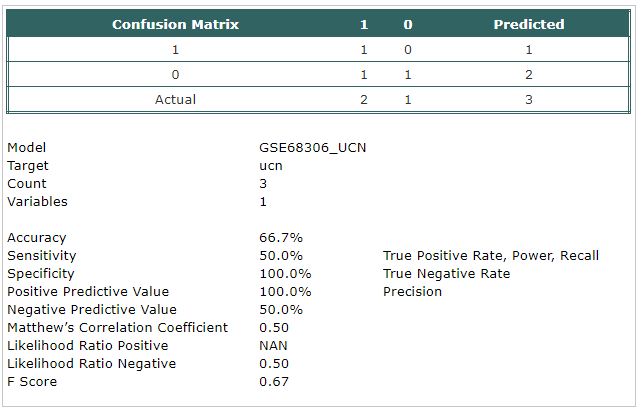GSE68306
|
| What
We Learned |
- Patients with ulcerative colitis (UC) are at increased risk for colorectal
cancer, although mechanisms underlying neoplastic transformation are poorly understood.
- This study sought to evaluate the role of microRNAs in neoplasia development in this high-risk population.
|
- miR-31, miR-34a, miR-106b, and
miR-193a-3p were significantly dysregulated in UC-neoplasia and adjacent tissue.
|
- Significant down-regulation of miR-193a-3p was also seen in an independent cohort of
UC-cancers.
- Changes in methylation of miR-193a or expression of pri-miR-193a were not observed in
UC-cancer.
- Transfection of miR-193a-3p resulted in decreased proliferation, and identified
IL17RD as a direct target of miR-193a-3p. I
|
- L17RD expression was increased in UC-cancers.
- miR-193a-3p treatment decreased growth and EGFR signaling of HCT116 cells in xenografts expressing both IL17RD with WT 3'UTR compared to cells expressing IL17RD with mutant 3'UTR.
|
- miR-193a-3p is down-regulated in
UC-neoplasia, and its loss promotes carcinogenesis through up-regulation of IL17RD.
- These findings provide novel insight into inflammation-driven CRC and could suggest new therapeutic targets in this high-risk population.
|
|
| What
We Did |
- A classification model has been built using Trainset
(Control against Ulcerative colitis associated neoplastic tissues).
- The selected probe was:
- hsa-miR-135b
|
- The model has been tested using Testset.
|
 |
|

